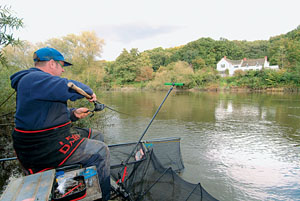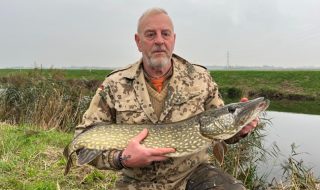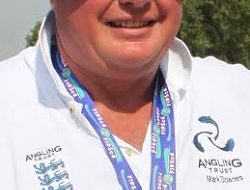A worrying level of pollution has been recorded on the Severn and its tributaries during a year of water quality testing organised by the Angling Trust.
The Water Quality Monitoring Network (WQMN) – a key part of the Trust’s Anglers Against Pollution campaign – was launched in May 2022 as a pilot project in the Severn catchment to enable angling clubs and their members to better understand the state of their rivers and take steps to improve them.
More than 40 volunteers from 18 angling clubs are monitoring 30 sites across the Severn catchment from the Upper Severn and its tributaries near its source in north Wales to below Tewkesbury in Gloucestershire.
Now the WQMN’s Severn Pilot Interim Report has revealed that of the 26 sites summarised in the report:
11 sites have a mean average that exceeded the UK’s Water Framework Directive upper limit for phosphates.
9 sites have a mean average that exceeded the trigger limit for nitrates.
8 sites exceeded both phosphate and nitrate limits.
Phosphate and nitrate are the primary source of nutrients in rivers but higher levels from agriculture and the sewage system cause eutrophication, the process whereby excess nutrient levels cause accelerated algal and plant growth with adverse effects on the ecology and uses of water bodies. The Severn now regularly experiences significant algal blooms, the riverbed is covered in brown algae along much of its course, and much of the catchment is now devoid of the once common Ranunculus, or water-crowfoot. Fine sediments also clog spawning gravels, suffocating fish eggs and invertebrates.
The Severn catchment experiences some of the highest levels of sewage discharges in the country and in the last two years has seen 33,667 spillages discharging for a total of 265,881 hour – that’s over 46 spillages per day – and was named “the worst river in England for sewage pollution” by the national media.
“It is upsetting to see such an iconic river as the Severn in such a state, but it is not surprising,” said Kris Kent, Angling Trust Campaigns & Advocacy Manage who leads on WQMN. “Even before the Severn Pilot was launched, we knew there were issues on the Severn caused by agricultural pollution, sewage discharges and urban runoff. The water quality testing has reaffirmed that pollution is damaging the Severn and urgent action needs to be taken now before it is too late.”
Glyn Marshall, Worcester Angling Society Chairman and Co-ordinator for the Severn Pilot, began his own testing of the Severn two years ago after noticing toilet paper and other sewage litter hanging from bankside trees following a flood.
“I’ve fished the river since I was 12 years old, but I and other anglers have noticed a marked decline in the past five years or so,” said Glyn. “Along with a couple of anglers we began our own monitoring and we quickly found out that the river biodiversity was under threat. Thankfully, the Angling Trust got involved and the WQMN Severn Pilot was launched.”
Glyn tests for water quality at Diglis in Worcester, and says the state of the river appears to be getting worse.
“Recent sampling has revealed that the phosphate levels are still extremely high, and this is a pattern which has not changed over the two years. There are definite algae blooms during the hot weather, with river clarity poor and a brown tinge. Unfortunately, there are two Combined Sewage Overflows above where I do my sampling and these outflows seem to be the source of the high levels of phosphate recorded.”
Glyn added: “The success of the pilot has been amazing. Anglers are now able to monitor their local river and very quickly identify water quality issues. Like my fellow anglers we all care passionately about the state of our waterways and with the help of the Angling Trust, we are doing something about it. The testing that I do in Worcester has uncovered some worrying issues and with the help of Fish Legal we are trying to find out more about the discharges into the river. Through the WQMN, anglers are not only the eyes and ears of our waterways but now we have become citizen scientists too.”
Following the launch of the Severn Pilot, the WQMN was rolled out nationally last July and now involves 491 volunteers and 202 angling clubs testing water quality on 149 rivers across 54 catchments. To date, 312 monitoring kits have been sent out to clubs and over 2,200 samples have been taken.
The Angling Trust is calling on the English and Welsh governments to act now to improve our rivers and has drawn up a 12-point action plan, which is included in the Severn Pilot Interim Report.
Kris Kent added: “We need the English and Welsh Governments to establish fully funded policies to address pollution in our waterways that deliver improvements now, not in the dim and distant future. Enforcement of regulatory standards need to be properly funded and addressing pollution of our rivers made a priority by Defra, Ofwat, the Environment Agency and Natural Resources Wales.
“We need farmers to stop polluting by complying with the most basic regulations for nitrates, slurry, silage, and the Farming Rules for Water, and for water companies to do more – and more quickly – introducing a ban on bonuses for directors and senior managers until raw sewage is no longer pouring into our rivers.
“And we want the government to follow through on its commitment to reinvest fines handed out to polluters into environmental improvements. Only then will we see the improvements our rivers and environment so badly need.”
THE ANGLING TRUST’S 12-POINT PLAN TO IMPROVE OUR WATERWAYS:
We need:
The English and Welsh Governments to establish fully funded policies to address pollution in our waterways that deliver improvements now, not in the dim and distant future.
Government to fund the enforcement of regulatory standards and implementation of the polluter pays principle across all sectors.
Government to fast track the mapping and replacement of septic tanks discharging into surface waters, with a focus on high-risk areas such as protected sites.
Government to ensure that the Department for Environment, Food and Rural Affairs (Defra), the Water Services Regulation Authority (Ofwat), the Environment Agency (EA), and Natural Resources Wales (NRW) prioritise addressing the pollution of our rivers and that they are funded in order to do so.
Government to provide significant investment in local and catchment wide nature-based improvements, working with nature and using natural processes to protect and improve water quality.
Government to include gateway requirements and specific options in all three Environmental Land Management schemes that go beyond regulatory baselines and basic good business practice and encourage farmers to achieve clean water in watercourses and waterbodies across their holdings. Options should range from basic soil health measures to large-scale habitat creation through arable reversion.
Government to drive compliance with agricultural diffuse water pollution regulations by establishing a comprehensive advice and training regime to support land managers, complementing enforcement work.
Farmers to stop polluting rivers and to comply with the most basic regulations such as Nitrate Vulnerable Zone (NVZ), Silage, Slurry and Agricultural Fuel Oil (SSAFO), Environmental Permitting Regulations (EPR), and the Farming Rules for Water.
The EA to further increase the number of Agriculture Regulatory Inspection Officers, undertake more farm inspections, support compliance, enforce regulations and boldly prosecute non-compliance.
Water companies to do more, and more quickly. No bonuses for directors and senior managers until raw sewage is no longer discharged into our rivers.
A change of culture at the EA and NRW. They need to become detectives looking for pollution and enforcers of the law.
Government to follow through on its commitment to reinvest fines handed out to polluters into environmental improvements.
Full Report






